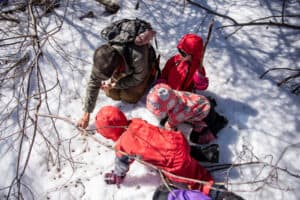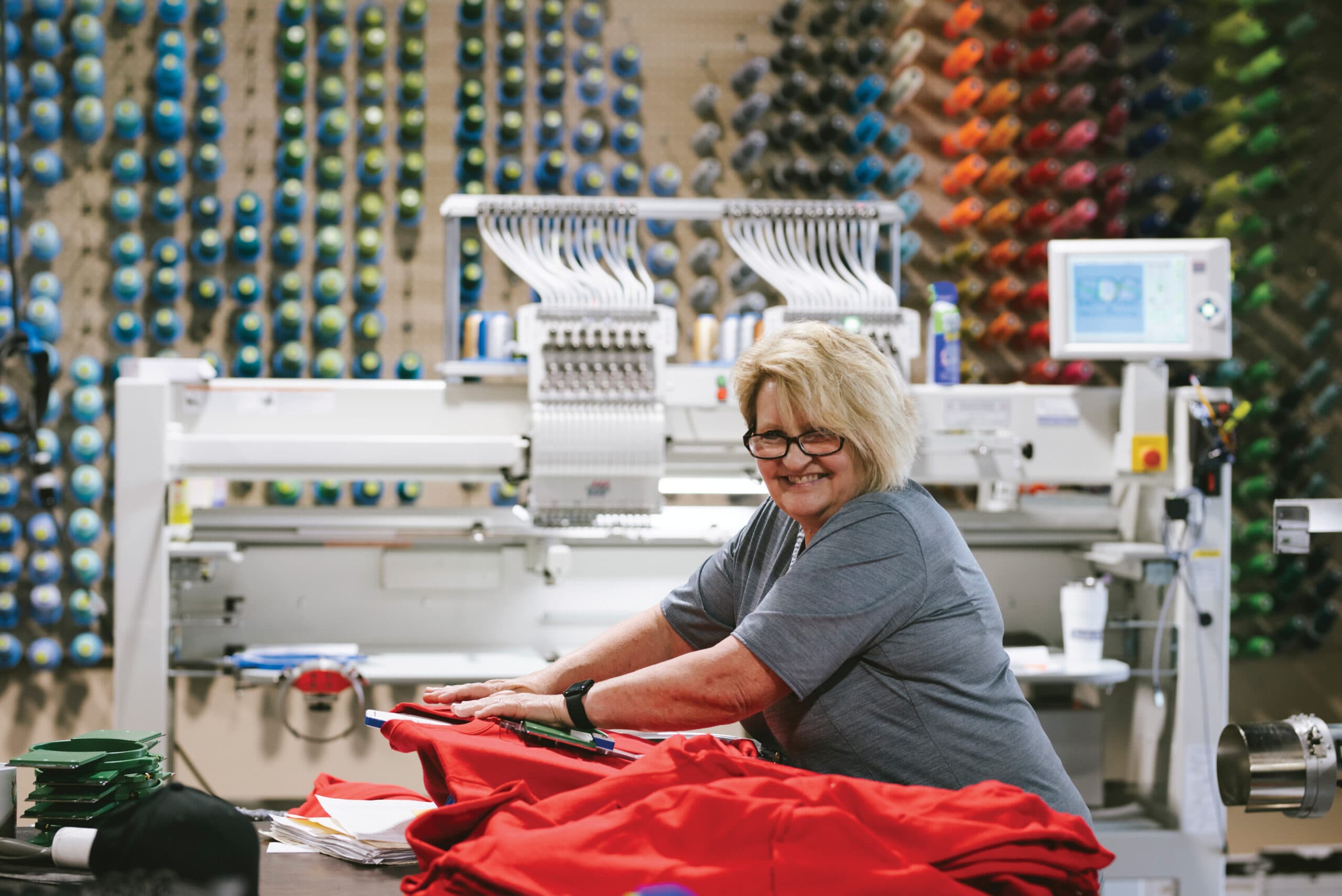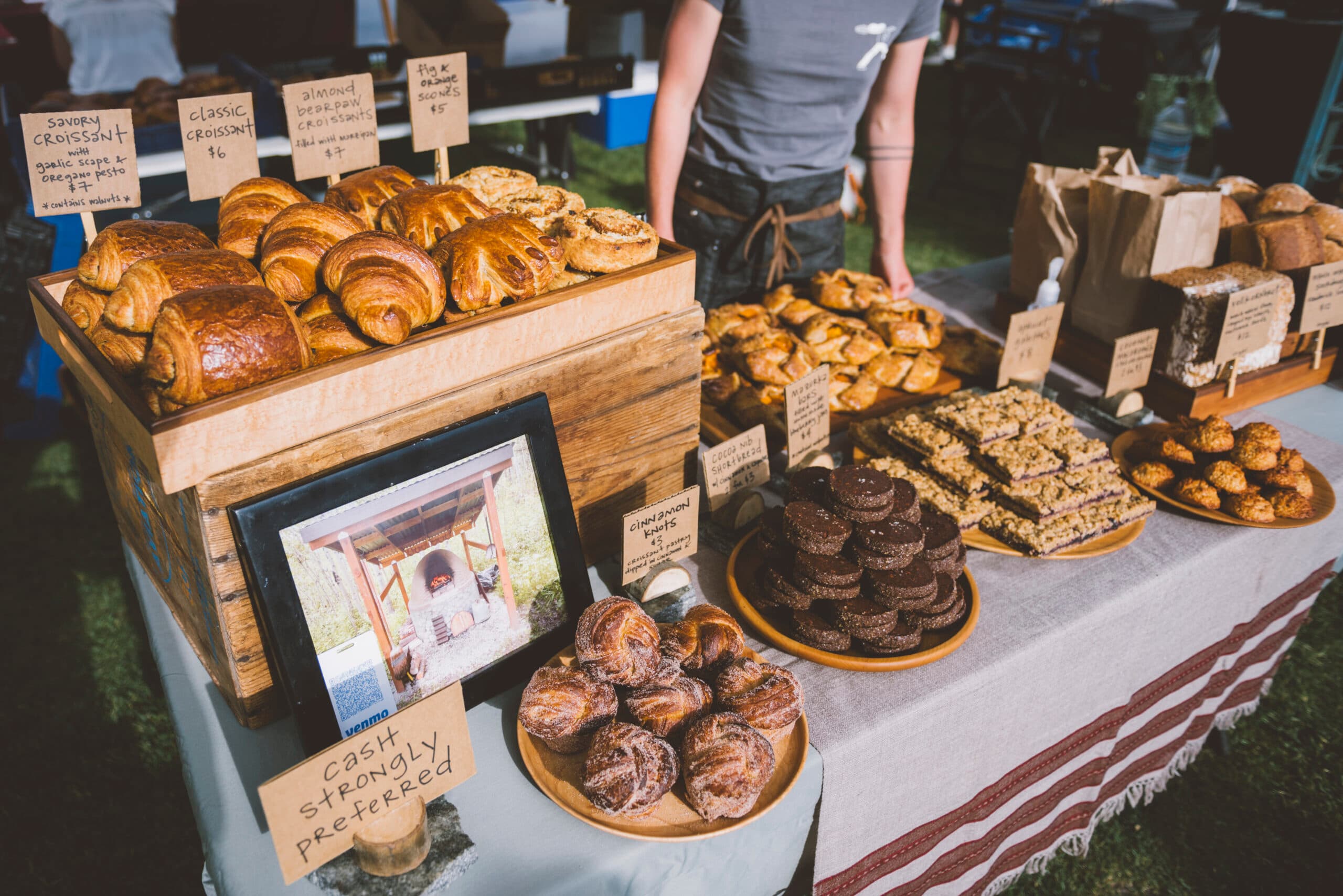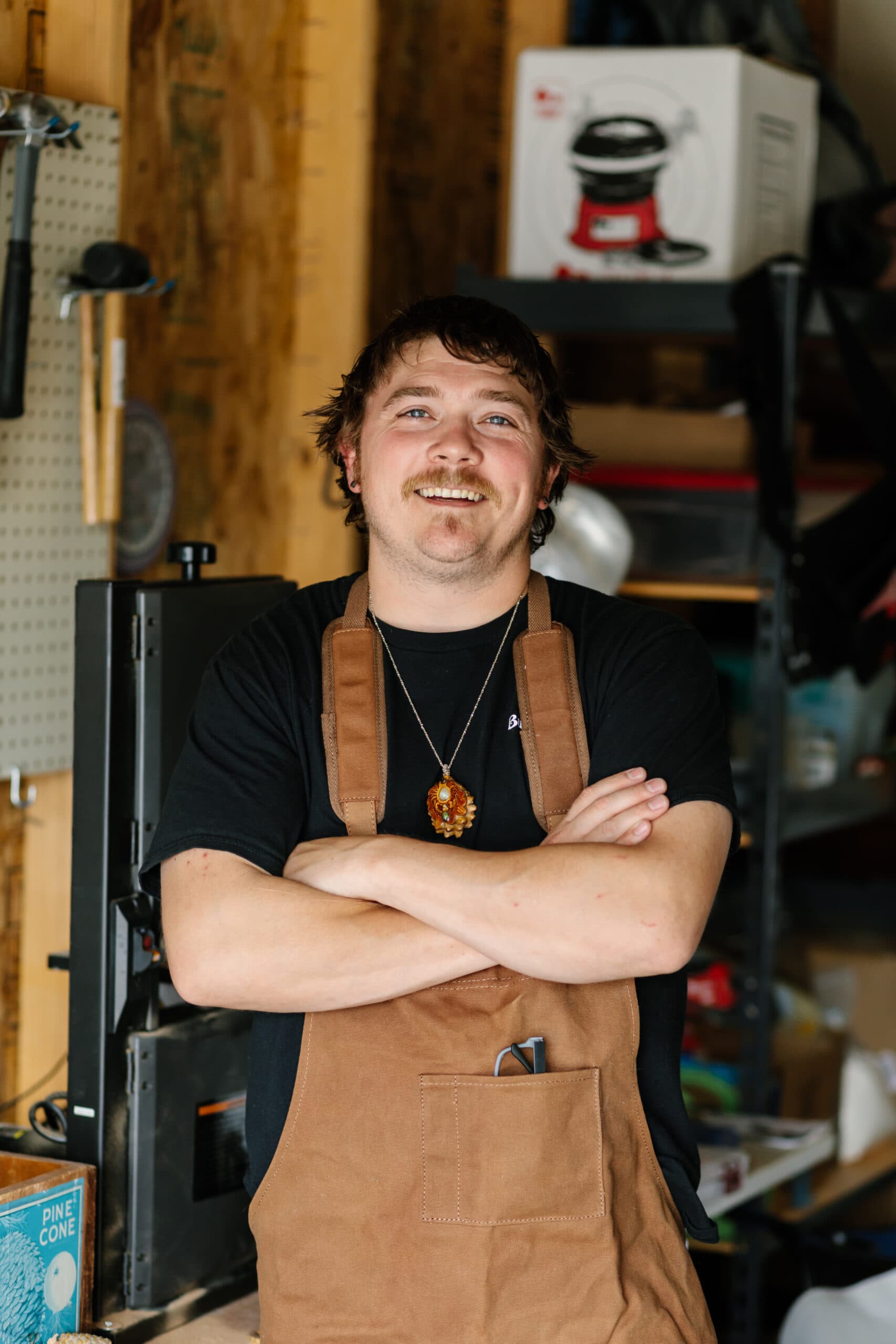Wild School

“Good morning to the grass. Good morning to the sun. Good morning to the warmth. Good morning to the frost, the trees, the sky, the pine tree, and the haze.”
This is how students in the Wild School of Teton Valley begin the morning circle in their outdoor wilderness classroom. David May, owner and educator, uses air quotes around the word ‘wilderness’ when describing the program. After all, they are never more than two hundred yards from the fifteen-passenger bus outfitted with car seats that transports the students to and from the day’s location, but the outdoors is indeed their classroom.

“The main idea is simplicity and getting kids outside, which are things that I have a deep skillset in,” David says. “I come from both an experiential and classroom-style education background and spent a lot of years in wilderness education taking people into the backcountry.”
This marriage of experiences is the ideal scenario to help preschoolers explore their Teton surroundings, while instilling values of kindness and care, curiosity and creativity, gratitude, inclusion, collaboration, and more—the
cornerstones of David’s program.
“David is a fantastic and well-rounded educator,” says Leah Ronnow, parent of a preschooler at Wild School. “Never have I seen someone that’s so competent in the outdoors, [and] also so emotionally in tune and able to communicate with that age group. He leads a safe, inclusive, and playful environment.”
Forest schools, the broader name for these nature-based educational programs, have been popping up throughout the country over the last decade. The book Last Child in the Woods by Richard Louv, published in 2005, helped popularize the idea that children should spend as much time as possible in the outdoors, and helped spur a resurgence in environmental education.

And while David sees the outdoor setting as an anchor of the program, one piece he has come to really embrace is the notion of shepherding community through the preschool, whether it is the Wild School community or the greater Teton Valley community.
“I think the [building of community] is the most valuable aspect to me at this point,” he says. “Getting kids into the community and how we serve our young people is incredibly important, too. And if every day, Teton Valley folks get used to seeing young people in some capacity, that’s valuable.”
The students make a quick stop each day to purchase their morning snack of apples and bread, most often at Barrels and Bins. If the weather is not conducive to outside time, they may explore the Geo Center in Driggs or visit the library. These experiences, along with others, help integrate the students into the community and provide the opportunity to work on numeracy and pre-literacy.
Each week David chooses a different location in the valley that will be their classroom, such as Teton Creek Corridor. The decision of where Wild School goes is dependent on several factors: weather, safety, and impact. The classroom location remains fluid and can change to manage risk. “Some places are more wind protected, some places are better for low temperatures, and some places are shadier,” David says.
By changing locations each week, the students are given the chance to learn about the different geographies, geological features, ecosystems, animals, and plants that are a part of the area. They also gain a lot of naturalist knowledge. A huge motivator for spending time outdoors with his students and his own three children is the global climate crisis. “I want my kids to know this world, to be able to be at home in it, and to do their best to do better than we have,” David says.
Held Mondays through Thursdays, Wild School of Teton Valley offers programming throughout the school year from 9 a.m. to 4 p.m. for children ages three, four, and five, in addition to a half-day summer program. Their days include a short bus ride to their wilderness classroom; a morning circle filled with greetings, books, and songs; teacher-led exploration; student-led exploration; and rest time. While a seven-hour day can be a long day for preschoolers, David says breaking the day up into chunks for each experience makes it manageable. And, when in doubt, the outdoor nap does the trick. “Napping outside is amazing!” he says.
“Through immersive outdoor experiences and hands-on learning, our son Kai has developed a deep appreciation for nature, built confidence, navigated friendships, developed strong gross motor skills, and become a very resilient four-year-old,” says parent Dara Hurst.
Wild School of Teton Valley, whose tag line is “Growing Good Humans, Outdoors,” entered its third school year this fall, and many of David’s early students just moved on to kindergarten.
“What I’ve discovered is that [the program] is incredibly powerful for getting kids ready for kindergarten,” he says. “Primarily what they need are social emotional skills to succeed in kindergarten.”
Skills like resolving conflict, learning to be brave, trying new things, and learning how to be wrong are frequent lessons for Wild School.
Each year, David continues to focus on the sustainability, longevity, and integrity of his program. “Knowing what we are and what we do, and doing it consistently,” he says. This helps ensure Wild School’s little humans grow and thrive, whether in the outdoors or beyond.
For more information visit wildschooltetonvalley.com or email wildschooltetonvalley@gmail.com.




